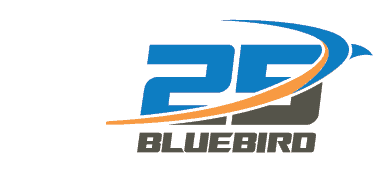Too many businesses lack the level of Internet service that they require. It’s often assumed that the services being used are adequate, until they fail. Those failures can not only lead to lost time but potentially lost business, resulting in serious problems in the long term. Even facilities such as schools, which one would assume prioritizes their Internet access, may lack the connectivity they actually need. According to a 2018 State of the States Report, 2.3 million students that year lacked access to broadband services that met the commission’s connectivity goal of 100 Mbps per 1,000 students and staff. If schools can’t meet their connectivity goals, it’s easy to imagine that many mid-sized businesses aren’t either. This is why many businesses are transitioning from legacy copper to fiber networks and addressing their current carrier services.
Fiber connectivity and upgrading to different types of Internet access offer a number of benefits, as you will see below. But what keeps many business owners from making the transition is that switching to a new service type is often intimidating when moving from the known to the unknown. Fortunately, different fiber solutions make that transition not only smooth, but ultimately a relief. Let’s explore the reasons why.
- Reliability
Superior customer service isn’t the only reason businesses consider upgrading to a more reliable carrier service. Users of fiber Internet access are less likely to experience network downtime as the technology is more intelligent and robust.
Compared to the traditional copper or wireless, fiber connectivity is consistently more reliable. Internet service that is prone to outages could come to a complete halt if the network suddenly stops working due to outdated transport technology, costing precious time and money. This is why it’s important for businesses to prioritize fiber networks.
- Speed
Just as an inconsistent connection can cost your business time and money, so too can a slow connection. Fiber networks are many times faster than the highest-speed copper Internet or wireless connections. They’re even more resistant to network overloading that can plague some networks during particularly busy times of day. Think about how much time employees may spend simply waiting for a web page to load due to a slow Internet connection. It’s crucial that a company’s web connection runs both smoothly and quickly. Additionally, with modern, faster fiber solutions such as Dedicated Internet Access means that it will be easier for businesses to scale and grow.
- Bandwidth
Most businesses today have an increasingly large need for bandwidth. If a business has grown significantly over the years, they will likely need much more bandwidth than when they initially started out. It’s quite easy to hit an Internet’s bandwidth “cap”, and if companies want to avoid this they should switch to fiber solutions. Fiber networks offer significantly more bandwidth and the speed will not decrease as the demand placed upon the network increases. Employees can stream training videos, use video conferencing services, rely on cloud applications, and share files through a fiber network without the risk of a bandwidth cap. This is particularly important as the pandemic created a more bandwidth-heavy environment due an increase in remote workforce.
- Security
Security is a real concern for businesses and Fiber networks can certainly provide a strong boost by utilizing a Dedicated Internet Access connection instead of a shared connection. A secure connection is something that businesses must take seriously as proprietary data can be stolen through shared connectivity. Through Dedicated Internet Access, businesses can feel more certain about the security of their information.
- Cost Efficiency
Upgrading to a fiber network is an investment in the long-term success of a company through time, money and technological improvements. For example, the speed at which employees will be able to accomplish tasks means that they can get more done in a shorter period of time, without the risk of downtime due to a poor and/or outdated connectivity. Consider the cost associated with upgrading to fiber as a long-term investment.
Today, running a business effectively, efficiently, and securely requires the technological advancements and benefits of utilizing a proper fiber network that is future-proof.

Recent Comments